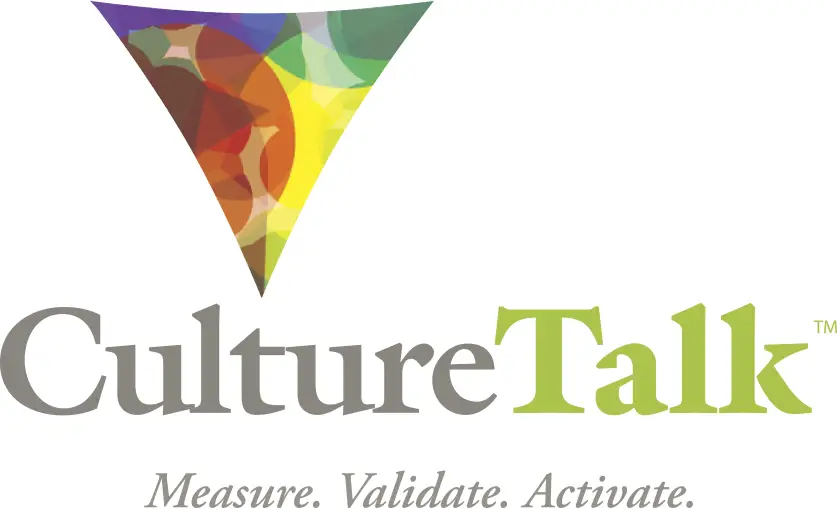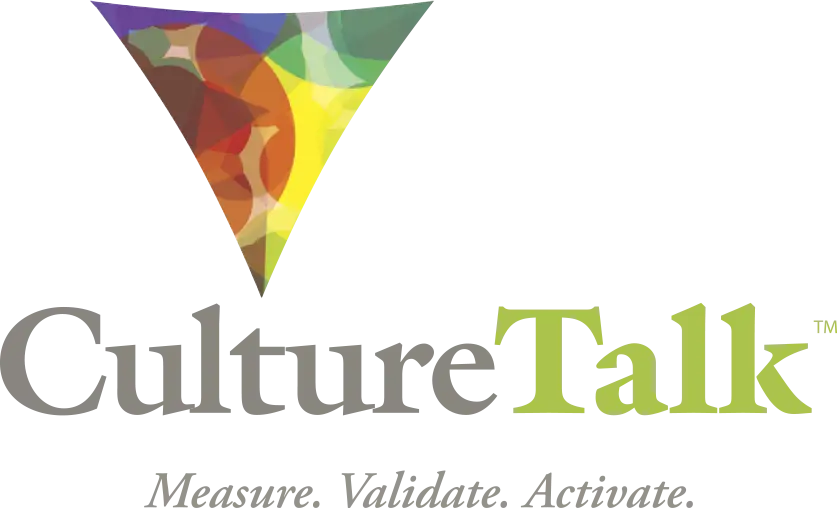Why A Half-Hearted Culture Initiative is Worse Than None
- June 28, 2023
- 4:44 pm
- Isabelle Forstmann
Is your culture assessment gathering dust?
We’ve all been there: Check the box approaches. Flavor of the month initiatives. We’ve taken an assessment about our organization because leaders said: your opinion counts! But we never hear anything else about it. Or we’ve taken an assessment designed to help us understand ourselves and our team members better. We discuss it once and it’s never mentioned again. There must be a drawer where all these old assessments are gathering dust!
The moment you survey a team to ask their opinion on cultural issues, you must be prepared to share authentic results and an action plan to create change. If you don’t, engagement and morale will be negatively affected.
If your BS-sensors go up at the mere mention of the word survey, our recent Thursdays with CultureTalk Live episode is for you. CultureTalk co-founders Cynthia Forstmann and Theresa Agresta answer the question “we’ve taken this survey, so now what?”
Catch the full conversation here:
No time to listen? Read on for the highlights of our conversation.
(2:21) Survey fatigue is real!
When bringing an assessment tool into an organization, you are sometimes met by a little resistance from the team. People may be skeptical because, in the past, they’ve answered surveys thoughtfully and intentionally only to never hear of it again.
“When we take a survey and the results sit on a shelf, then, instead of boosting engagement, we’re taking a shot at employee morale.”
| Theresa Agresta, CultureTalk Co-founder
(3:30) A narrow approach
First, we must consider why assessments are used. Organizations may use assessments for a variety of purposes from hiring and onboarding, to team building and leadership development. These initiatives are well-intended, but they may be so dialed on a particular purpose that the results are not broadly applicable.
(7:10) Benchmarks can de-motivate
Oftentimes, assessments are benchmark focused. But when it comes to culture, leaders may avoid a comparative score. They don’t want the culture to be judged as ‘good’ or ‘bad.’
(10:54) So we’ve taken an assessment – now what?
At CultureTalk we describe our assessment process as “Measure. Validate. Activate.” Validation is an important step; activation cannot happen without it. Rather than just being handed a result, team members get to personalize their Archetypes and find the best way to
tell their stories. It’s a collaborative, participatory process.
(17:19) Stronger interviews
Archetypes offer a short cut to more authentic interview conversations. The key to effective hiring is to find out early “what are the places where this person would be an effective match?” Likewise, a new hire wants to know “Who I am?” “How do I fit into this team?
(20:00) Asking the right questions about employee engagement
Rather than asking: Are you engaged? We should be asking: How do you engage? CultureTalk assessments provide insight into what motivates a person, what lights them up. Archetypes also reveal what it looks like when someone is collaborating with the team from their place of strength. This information is not only useful for leaders, but also valuable self-knowledge that urges us to reflect on how we’re showing up.
(24:43) Escaping the Pigeonhole
No one wants to take an assessment that makes them feel like they’ve been ‘put in a box.’ When someone takes the CultureTalk assessment, an important next step is validating the results. This is a process through which an individual or group reviews their results and discerns how the storylines show up in their experience.
When team members can validate their results, the categories they choose become empowering rather than disempowering. They feel seen and understood. And this enables one to consider how they can use their strengths and weaknesses in support of a common cause.
(26:14) Insights that deepen over time
Cynthia shares story about a CultureTalk certified partner who ran a team-building engagement. The team’s leader said very little during the initial workshop, leaving the partner to think they weren’t connecting with the ideas. However, the next day, the leader called with questions and reflections that led to a deep conversation.
Archetypes can create insights in-the-moment that deepen over time.
With CultureTalk, you can survey an individual or organization once and continue to activate the profiles across a broad range of leadership, team, and culture development initiatives.





